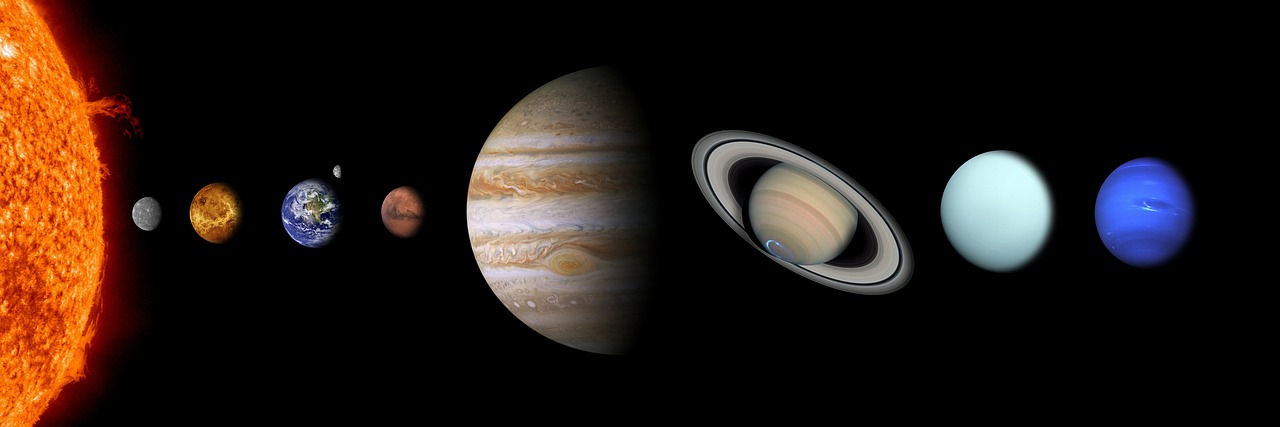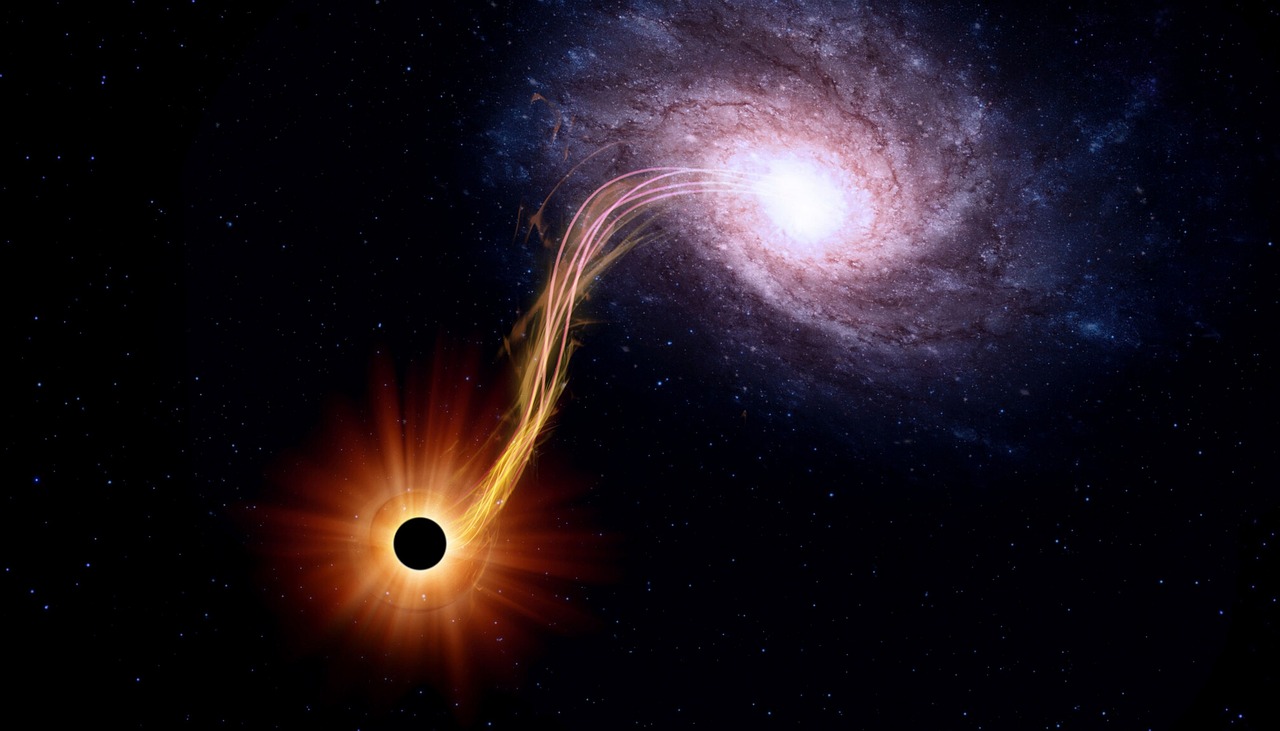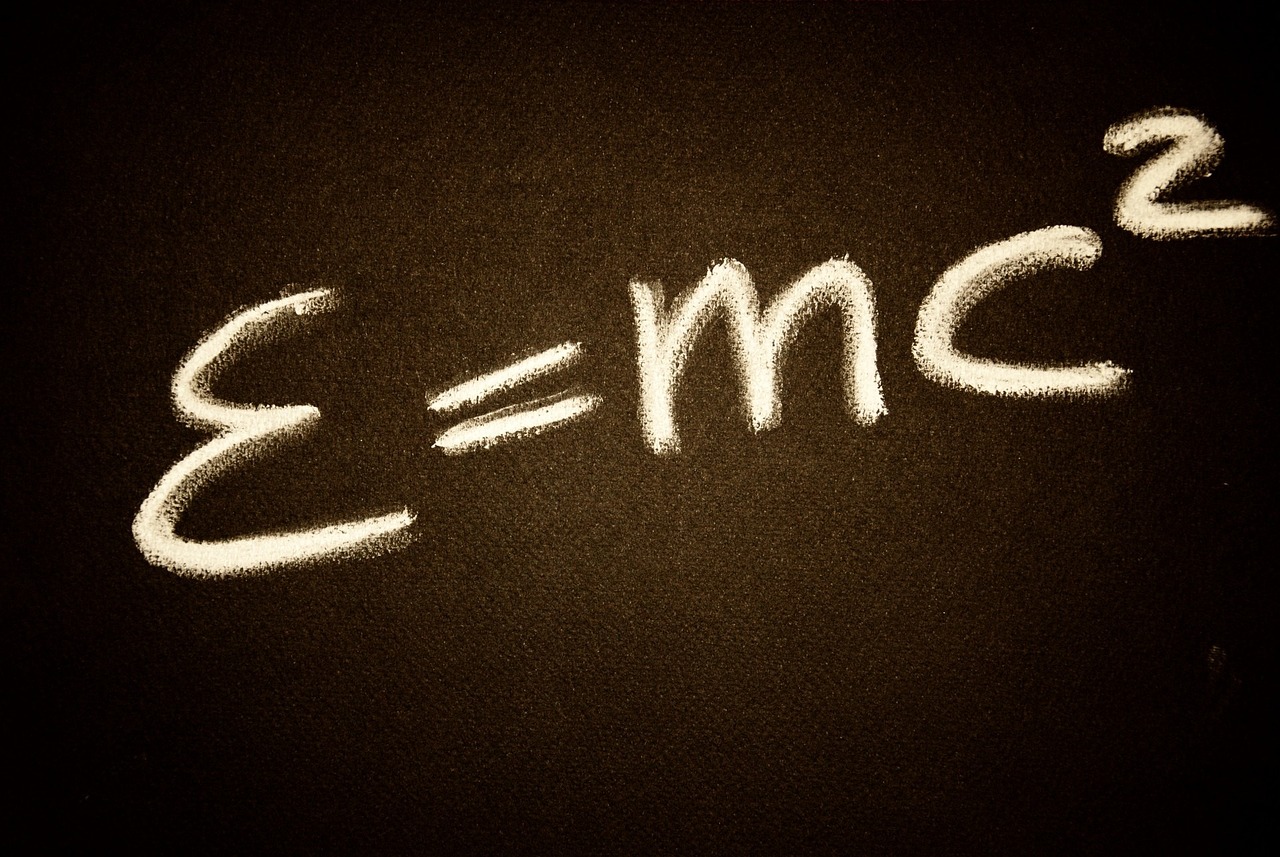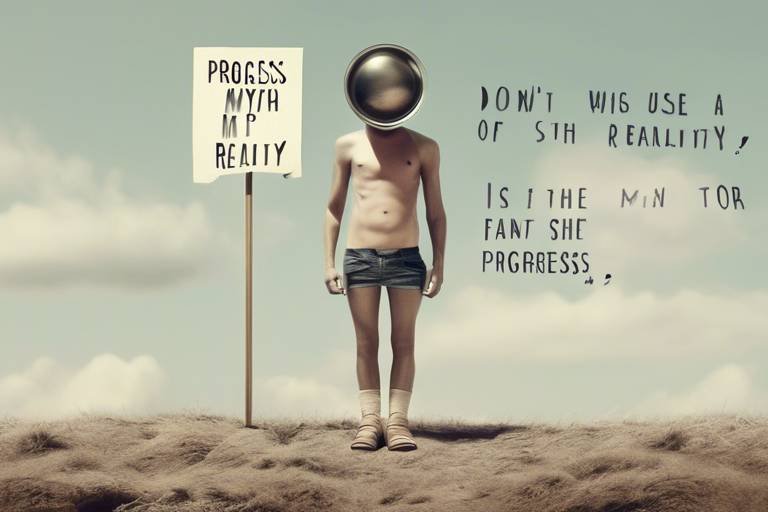Science and Metaphysics - A Love-Hate Relationship
Throughout history, the realms of science and metaphysics have danced a complex tango, often stepping in sync but sometimes stepping on each other's toes. This relationship is akin to a passionate romance, filled with moments of intense collaboration and equally intense conflict. At their core, science seeks to unravel the mysteries of the universe through empirical evidence and observable phenomena, while metaphysics delves into the abstract, pondering questions that often elude the grasp of scientific inquiry. It's a classic case of love and hate, where both disciplines challenge and inspire one another, yet remain distinct in their methodologies and objectives.
In this exploration, we will peel back the layers of this intricate relationship, examining how these fields have influenced each other over time. From the ancient philosophers who laid the groundwork for scientific thought to modern-day debates that question the very fabric of reality, the interplay between science and metaphysics continues to shape our understanding of existence. So, why does this relationship matter? Understanding the nuances of their interaction not only enriches our grasp of the universe but also invites us to reflect on our own beliefs about reality, existence, and the nature of knowledge itself.
As we journey through this article, we will uncover the historical context that has defined the science-metaphysics relationship, clarify the unique characteristics of each field, and delve into contemporary debates that illustrate their ongoing dialogue. Are you ready to explore the fascinating love-hate relationship between science and metaphysics? Buckle up, as we navigate through the intricate layers of thought and inquiry that define our quest for understanding!
Understanding the historical evolution of science and metaphysics reveals how they have influenced each other over time, shaping philosophical thought and scientific discovery from ancient civilizations to modern times.
Clarifying the definitions of science and metaphysics is essential for understanding their unique characteristics, methodologies, and the ways in which they seek to explain the nature of reality.
Exploring the distinct methodologies employed by science and metaphysics highlights their different approaches to knowledge acquisition, including empirical evidence versus philosophical reasoning.
Empiricism is a cornerstone of scientific inquiry, relying on observation and experimentation to validate theories and claims about the natural world.
Metaphysics often employs philosophical reasoning and abstract thought to address questions that lie beyond empirical observation, such as existence, reality, and the nature of being.
Despite their differences, science and metaphysics intersect in various areas, particularly in questions concerning the fundamental nature of reality, consciousness, and the universe.
Quantum physics serves as a fascinating bridge between science and metaphysics, raising profound questions about reality, observation, and the nature of existence that challenge traditional scientific paradigms.
The implications of quantum physics on our understanding of reality provoke philosophical debates about determinism, free will, and the nature of consciousness.
Different philosophical interpretations of quantum mechanics, such as the Copenhagen interpretation and many-worlds theory, illustrate the ongoing dialogue between scientific theories and metaphysical concepts.
Current discussions in philosophy of science often center around the tensions and collaborations between scientific inquiry and metaphysical speculation, highlighting the relevance of this relationship in addressing modern existential questions.
The ongoing debate regarding whether science can fully explain reality or if metaphysical perspectives are necessary showcases the complexities of human understanding.
Some thinkers advocate for a collaborative approach, suggesting that science and metaphysics can coexist and enrich each other, offering a more comprehensive understanding of existence and the universe.
- What is the main difference between science and metaphysics? Science relies on empirical evidence and experimentation, whereas metaphysics deals with questions beyond physical observation.
- Can science and metaphysics coexist? Yes, many scholars believe they can complement each other, providing a richer understanding of reality.
- How does quantum physics relate to metaphysics? Quantum physics raises questions about the nature of reality that align with metaphysical inquiries, such as the nature of existence and consciousness.

The Historical Context
Understanding the historical evolution of science and metaphysics reveals a fascinating tapestry of thought that has shaped human understanding for millennia. From the ancient civilizations of Egypt and Greece to the modern scientific age, these two domains have been inextricably linked, influencing one another in profound ways. In ancient times, metaphysical inquiries often laid the groundwork for scientific exploration. Thinkers like Aristotle and Plato pondered the nature of existence and reality, which in turn sparked curiosity about the physical world around them.
As we moved into the Renaissance, a period marked by significant advancements in scientific thought, the relationship between science and metaphysics began to shift. The emergence of the scientific method, championed by figures such as Galileo and Newton, emphasized empirical observation and mathematical reasoning. This shift led to a growing belief that the physical world could be understood through experimentation and rational thought, while metaphysics began to be viewed as increasingly abstract and less relevant to practical inquiry.
However, the interplay between these fields did not cease; rather, it evolved. In the 19th century, thinkers like Karl Marx and Friedrich Nietzsche challenged traditional metaphysical concepts, urging a more empirical approach to understanding human existence. Yet, even as science advanced, questions remained—questions about the nature of consciousness, the essence of reality, and the existence of free will. This is where the lines between science and metaphysics began to blur once again.
In the 20th century, the advent of quantum physics introduced a new layer of complexity to this relationship. Scientists like Einstein and Heisenberg opened up discussions that were not merely scientific but deeply metaphysical. The implications of quantum mechanics challenged our understanding of reality, leading to philosophical debates that echoed the inquiries of ancient thinkers. This ongoing dialogue showcases how the historical context of science and metaphysics is not just a linear progression but a dynamic interplay of ideas that continues to shape our worldview today.
To summarize, the historical relationship between science and metaphysics can be viewed through several key phases:
| Period | Key Thinkers | Characteristics |
|---|---|---|
| Ancient Civilizations | Aristotle, Plato | Foundational metaphysical inquiries |
| Renaissance | Galileo, Newton | Rise of the scientific method |
| 19th Century | Marx, Nietzsche | Challenge to traditional metaphysics |
| 20th Century | Einstein, Heisenberg | Quantum physics and metaphysical implications |
As we continue to explore this intricate relationship, it becomes evident that science and metaphysics are not adversaries but rather partners in the quest for understanding. Each has its own strengths and weaknesses, yet together, they offer a more comprehensive view of the universe and our place within it.

Defining Science and Metaphysics
To truly grasp the intricate relationship between science and metaphysics, we must first define what each term means. At its core, science is the systematic study of the natural world, employing rigorous methodologies to gather empirical data. Scientists formulate hypotheses, conduct experiments, and analyze results to draw conclusions that can be tested and verified. This process is often characterized by a cycle of observation, experimentation, and refinement, which allows for a progressively deeper understanding of the universe.
On the other hand, metaphysics delves into the fundamental nature of reality itself. It seeks to answer profound questions that often lie beyond the reach of empirical observation. Metaphysics grapples with concepts such as existence, the nature of objects, time, space, and causality. While science is grounded in observable phenomena, metaphysics ventures into the abstract, exploring ideas that may not be directly measurable or testable. This divergence in focus leads to a fascinating interplay between the two disciplines.
To illustrate the differences and overlaps between science and metaphysics, consider the following table:
| Aspect | Science | Metaphysics |
|---|---|---|
| Focus | Natural phenomena | Fundamental questions about existence |
| Methodology | Empirical observation and experimentation | Philosophical reasoning and abstract thought |
| Validation | Testable hypotheses | Logical coherence and argumentation |
| Examples | Physics, Chemistry, Biology | Ontology, Cosmology, Epistemology |
This table highlights how science and metaphysics, while distinct in their approaches and aims, can still converge in their quest for understanding. For instance, scientists might rely on metaphysical assumptions when they postulate about the universe’s origins or the nature of consciousness. Conversely, metaphysical inquiries can often be informed by scientific discoveries, leading to a richer dialogue between the two fields.
In conclusion, defining science and metaphysics lays the groundwork for understanding their unique characteristics and the ways they interact. While science seeks to explain the world through observation and experimentation, metaphysics invites us to ponder the deeper questions about existence and reality. This dynamic relationship continues to evolve, influencing philosophical thought and scientific inquiry alike.
- What is the main difference between science and metaphysics? Science focuses on empirical evidence and the natural world, while metaphysics explores abstract concepts and fundamental questions about existence.
- Can science and metaphysics coexist? Yes, many thinkers argue that they can complement each other, offering a more comprehensive understanding of reality.
- Why is metaphysics important in the context of science? Metaphysics provides a philosophical framework that can help interpret scientific findings and address questions that science alone may not be able to answer.

Methodological Differences
The exploration of between science and metaphysics is akin to comparing two distinct languages that seek to describe the same reality but do so with different alphabets. Science, with its rigorous reliance on empirical evidence, is like a detective meticulously gathering clues through observation and experimentation. It thrives on testable hypotheses and repeatable results, forming a solid foundation built on what can be seen, measured, and quantified. This methodical approach allows scientists to develop theories that can be validated or refuted by others, creating a communal framework of knowledge that evolves over time.
On the other hand, metaphysics operates in a more abstract realm, often delving into questions that lie beyond the grasp of empirical validation. It is the philosopher’s playground, where concepts such as existence, reality, and the nature of being are examined through the lens of logical reasoning and philosophical inquiry. Metaphysical questions often arise from deep pondering about the universe, asking “Why are we here?” or “What is the nature of reality?” These inquiries do not lend themselves to straightforward testing in a laboratory but rather invite a rich tapestry of thought and speculation.
To illustrate the contrast, consider the following table that summarizes key methodological differences:
| Aspect | Science | Metaphysics |
|---|---|---|
| Approach | Empirical | Philosophical |
| Validation | Testable and repeatable | Reasoned arguments and logical consistency |
| Focus | Natural phenomena | Abstract concepts |
| Outcome | Theories and laws | Frameworks of understanding |
Through this lens, we can see that while science seeks to provide concrete answers through experimentation and observation, metaphysics embraces the ambiguity of existence, often leading to more questions than answers. This dance between the two disciplines creates a rich dialogue, where science can inform metaphysical thought and vice versa. It’s a bit like a conversation between a scientist and a philosopher, where one provides the facts and the other weaves those facts into a broader narrative of human understanding.
Ultimately, the methodological differences between science and metaphysics highlight the unique ways in which humans seek to comprehend the world around them. While one may find solace in the concrete and the observable, the other finds beauty in the abstract and the speculative. Both approaches are vital, as they enrich our understanding of existence and challenge us to think deeply about the nature of reality.

Empiricism in Science
Empiricism is often hailed as the backbone of scientific inquiry, acting as the guiding principle that shapes how we gather knowledge about the natural world. At its core, empiricism asserts that knowledge comes primarily from sensory experience. This means that scientists rely on observation, experimentation, and evidence to formulate theories and validate claims. Imagine trying to understand how a car works without ever looking under the hood or taking it for a test drive; that’s akin to ignoring empirical evidence in science. The scientific method, which is a systematic approach to inquiry, embodies this principle by emphasizing the importance of observable data and repeatable experiments.
One of the defining characteristics of empiricism is its insistence on testability. In the realm of science, a hypothesis must be testable and falsifiable. This means that for any scientific claim to hold water, it must be possible to observe the outcome of an experiment and determine whether the hypothesis is true or false. For instance, if a scientist posits that a certain chemical reaction will produce a specific gas, they can set up an experiment to test this claim. If the gas is produced, the hypothesis gains support; if not, it is either revised or discarded. This cycle of testing and revising is what propels scientific knowledge forward.
Empiricism also fosters a culture of skepticism and inquiry. Scientists are encouraged to question existing theories and to seek new evidence that may challenge established beliefs. This is crucial because scientific understanding is not static; it evolves as new data emerges. A classic example is the transition from Newtonian physics to Einstein's theory of relativity. Newton's laws were long considered the definitive explanation of motion until empirical evidence from experiments and astronomical observations led to a reevaluation of those laws in light of new findings.
Furthermore, the role of technology in enhancing empirical research cannot be overstated. Modern instruments such as telescopes, microscopes, and various sensors have expanded our capacity to observe phenomena that were previously beyond our reach. This technological advancement allows scientists to gather data that support or contradict their theories, thereby enriching the empirical foundation of their work. For example, the discovery of subatomic particles through particle accelerators has provided insights into the fundamental building blocks of matter, demonstrating how empirical evidence can reshape our understanding of reality.
In summary, empiricism is not just a method; it is a philosophy that underpins the entire scientific enterprise. It encourages a rigorous approach to understanding the world, one that values evidence and observation over speculation. This commitment to empirical research is what allows science to make progress, adapt, and ultimately, provide a clearer picture of the universe we inhabit. As we delve deeper into the mysteries of existence, the empirical approach remains a beacon guiding our quest for knowledge.
- What is empiricism in science?
Empiricism in science is the philosophical approach that emphasizes knowledge gained through sensory experience, observation, and experimentation. - Why is testability important in scientific research?
Testability is crucial because it allows scientists to formulate hypotheses that can be supported or refuted through empirical evidence, ensuring the reliability of scientific claims. - How has technology impacted empirical research?
Technology has significantly enhanced empirical research by providing advanced tools that allow for more precise observations and experiments, leading to deeper insights into scientific phenomena. - Can scientific theories change?
Yes, scientific theories can change as new empirical evidence emerges, highlighting the dynamic nature of scientific understanding.

Philosophical Reasoning in Metaphysics
When we delve into the realm of metaphysics, we encounter a landscape rich with abstract thought and philosophical inquiry. Unlike the empirical methods that dominate the scientific world, metaphysics invites us to explore questions that often lie beyond the reach of observable phenomena. Think of it as a philosophical treasure hunt, where the clues are not physical objects but concepts and ideas that challenge our understanding of existence itself.
At the heart of metaphysical inquiry is a series of profound questions that have puzzled thinkers for centuries. These include:
- What is the nature of reality?
- Does the universe have a purpose?
- What is the relationship between mind and body?
- Is free will an illusion?
Each of these questions opens up a Pandora's box of philosophical reasoning, requiring us to engage in deep reflection and critical thinking. Metaphysicians often employ conceptual analysis to dissect these questions, breaking them down into smaller, more manageable parts. This method allows them to examine the underlying assumptions and implications of various philosophical positions.
One of the most intriguing aspects of metaphysical reasoning is its reliance on thought experiments. These mental exercises help philosophers explore complex ideas without the need for physical experimentation. For instance, consider the famous Ship of Theseus paradox: If you replace all the parts of a ship, is it still the same ship? This question invites us to ponder the nature of identity and change, illustrating how metaphysical reasoning can illuminate our understanding of reality.
Moreover, metaphysics often intersects with other branches of philosophy, such as epistemology (the study of knowledge) and ontology (the study of being). By examining the connections between these areas, philosophers can develop a more comprehensive framework for understanding existence. For example, the question of what it means to exist (ontology) is deeply intertwined with how we come to know things (epistemology).
In contemporary discussions, metaphysical reasoning continues to play a crucial role in debates about the nature of consciousness and the universe. As we grapple with advancements in science, particularly in fields like quantum physics, the philosophical implications of these discoveries prompt us to reconsider our metaphysical assumptions. Are we merely products of our physical environment, or is there something more to our existence? Metaphysical reasoning encourages us to explore these profound questions, bridging the gap between science and philosophy.
In conclusion, while science provides us with empirical data and observable phenomena, metaphysics invites us to engage in a deeper exploration of the questions that shape our understanding of reality. Through philosophical reasoning, we can navigate the complexities of existence, challenging our perceptions and expanding our horizons. Like a compass guiding us through the fog of uncertainty, metaphysical inquiry illuminates the path toward a richer understanding of ourselves and the universe.
- What is metaphysics? Metaphysics is a branch of philosophy that explores the fundamental nature of reality, including existence, objects, and their properties.
- How does metaphysics differ from science? While science relies on empirical evidence and experimentation, metaphysics employs philosophical reasoning to address questions that may not be observable or measurable.
- Can science and metaphysics coexist? Yes, many thinkers argue that science and metaphysics can complement each other, providing a more comprehensive understanding of existence.
- What are some examples of metaphysical questions? Examples include inquiries about the nature of time, the concept of free will, and the existence of universals.

Areas of Overlap
The relationship between science and metaphysics is not merely a tale of opposition; rather, it is a complex tapestry woven with threads of overlap that underscores their interconnectedness. At first glance, one might think of science as the realm of hard facts and empirical data, while metaphysics dances in the ethereal realm of abstract concepts and philosophical musings. However, when we delve deeper, we discover that both domains share a common ground in their quest to understand the fundamental nature of reality. This intersection raises intriguing questions about existence, consciousness, and the universe itself.
One of the most significant areas of overlap lies in the domain of consciousness. Both scientists and metaphysicians grapple with the enigma of what it means to be aware and how consciousness arises. Science approaches this phenomenon through the lens of neuroscience and psychology, employing empirical methods to study brain activity and cognitive functions. In contrast, metaphysics delves into the essence of consciousness, pondering questions such as: What is the nature of the self? Is consciousness a product of physical processes, or does it exist independently? This dialogue between the two fields enriches our understanding of consciousness and invites us to explore its mysteries from multiple perspectives.
Another area where science and metaphysics converge is in the exploration of reality itself. Consider the fundamental questions that both disciplines seek to answer: What is real? How do we define existence? In science, these questions often manifest in the study of quantum mechanics, where the behavior of particles challenges our conventional notions of reality. Here, scientists find themselves grappling with concepts that seem to blur the lines between the physical and the metaphysical. For instance, the phenomenon of quantum entanglement raises profound implications about the interconnectedness of particles, suggesting that our understanding of reality may be far more intricate than we previously imagined.
Moreover, the overlap extends to the realm of cosmology, where both scientific inquiry and metaphysical speculation collide. Scientists strive to understand the origins of the universe, the nature of time, and the potential for multiple dimensions. Meanwhile, metaphysicians ponder the implications of these scientific discoveries on our understanding of existence. For example, the concept of a multiverse—a theory positing the existence of multiple, perhaps infinite, universes—sparks debates that straddle both scientific and metaphysical realms. Are we merely one of countless universes, each with its own set of physical laws? What does this mean for our understanding of identity and reality? These questions highlight the rich dialogue that exists between science and metaphysics.
In summary, the areas of overlap between science and metaphysics are not only fascinating but also essential for a holistic understanding of our existence. By bridging the empirical with the philosophical, we open ourselves to a broader spectrum of inquiry that challenges our perceptions and invites us to ponder the deeper mysteries of life. As we continue to explore these intersections, we may find that the boundaries separating science and metaphysics are more porous than we once believed, allowing for a collaborative approach to understanding the universe.
- What is the main difference between science and metaphysics? Science relies on empirical evidence and experimentation, while metaphysics deals with abstract concepts and philosophical reasoning.
- Can science and metaphysics coexist? Yes, many scholars believe that they can complement each other, providing a more comprehensive understanding of reality.
- How does quantum physics relate to metaphysics? Quantum physics raises profound questions about reality and existence, prompting philosophical debates that intersect with metaphysical thought.
- What are some common areas of overlap between science and metaphysics? Consciousness, reality, and cosmology are significant areas where both fields intersect.

The Role of Quantum Physics
Quantum physics is not just a branch of science; it’s a fascinating bridge that connects the realms of science and metaphysics in ways that are both profound and perplexing. Imagine standing at the edge of a vast ocean, where the waves of scientific inquiry crash against the shores of metaphysical thought. This is where quantum physics resides—a place where traditional understandings of reality are challenged and redefined. At its core, quantum physics raises questions that have puzzled thinkers for centuries: What is the nature of reality? How does observation influence existence? And what does it mean for something to be real?
To grasp the significance of quantum physics, one must first appreciate its fundamental principles. Unlike classical physics, which operates under deterministic laws, quantum physics introduces a level of uncertainty and probability. The famous thought experiment, Schrödinger's cat, encapsulates this idea beautifully: a cat in a sealed box is both alive and dead until observed. This paradox not only challenges our understanding of reality but also suggests that the act of observation plays a crucial role in shaping what we perceive as real. It’s as if reality itself is waiting for us to look, to engage, to witness its unfolding.
Furthermore, the implications of quantum physics extend beyond mere theoretical musings. They provoke deep philosophical debates about concepts such as determinism and free will. If the universe operates on probabilities rather than certainties, can we truly claim to have control over our actions? This existential question echoes through the halls of both scientific laboratories and philosophical discourse, prompting us to reconsider our place in the universe.
Additionally, the various interpretations of quantum mechanics further illustrate the intricate dance between science and metaphysics. Here are a few noteworthy interpretations:
- Copenhagen Interpretation: This interpretation posits that quantum particles exist in a state of probability until observed, emphasizing the role of the observer in shaping reality.
- Many-Worlds Theory: In contrast, this theory suggests that every possible outcome of a quantum event actually occurs in its own separate universe, leading to an infinite number of parallel realities.
- Pilot-Wave Theory: This deterministic interpretation proposes that particles have definite positions and velocities, guided by a "pilot wave," which challenges the probabilistic nature of quantum mechanics.
These interpretations not only highlight the scientific complexities of quantum physics but also open the door to metaphysical inquiries about existence, consciousness, and the very fabric of reality. It’s as if quantum physics is a mirror reflecting our deepest philosophical questions, urging us to explore what lies beyond the surface of empirical observation.
In conclusion, the role of quantum physics in the science-metaphysics dialogue is both thrilling and essential. As we delve deeper into the quantum realm, we find ourselves confronting not just the mechanics of particles, but also the fundamental nature of existence itself. This interplay invites us to embrace uncertainty, to question our assumptions, and to explore the mysteries that lie at the intersection of science and philosophy.
- What is quantum physics? Quantum physics is a branch of physics that studies the behavior of matter and energy at the smallest scales, such as atoms and subatomic particles.
- How does quantum physics relate to metaphysics? Quantum physics raises questions about the nature of reality, existence, and consciousness, which are central themes in metaphysical inquiry.
- What are some interpretations of quantum mechanics? Notable interpretations include the Copenhagen interpretation, many-worlds theory, and pilot-wave theory, each offering different perspectives on quantum phenomena.

Implications for Reality
The implications of quantum physics on our understanding of reality are nothing short of mind-boggling. Imagine standing at the edge of a vast ocean, where each wave represents a different possibility of existence. Quantum mechanics invites us to consider that reality isn’t just a single, fixed entity but rather a complex tapestry woven from countless threads of potential outcomes. This perspective challenges our traditional notions of determinism—the idea that every event is predetermined by preceding events, much like a chain reaction in a game of dominoes.
In the quantum realm, particles can exist in multiple states simultaneously, a phenomenon known as superposition. This leads to profound questions: If particles can be in multiple states at once, what does that say about our own existence? Are we merely observers in a universe that is constantly shifting and changing based on our perceptions? These questions are not just academic; they strike at the heart of our understanding of free will and consciousness.
To illustrate this, consider the famous thought experiment known as Schrödinger's Cat. In this scenario, a cat is placed in a sealed box with a radioactive atom that has a 50% chance of decaying. Until we open the box and observe the cat, it is considered to be both alive and dead simultaneously. This paradox highlights the role of the observer in determining reality. Are we, as conscious beings, the key to collapsing these multiple possibilities into a single outcome? Or is reality independent of our observation, existing in a state of flux until we choose to engage with it?
Additionally, quantum entanglement further complicates our understanding of reality. When two particles become entangled, the state of one particle instantaneously affects the state of the other, regardless of the distance separating them. This phenomenon suggests that the universe is interconnected in ways we have yet to fully comprehend. It raises the tantalizing possibility that our understanding of space and time may be fundamentally flawed. Are we truly separate entities, or are we all part of a greater cosmic web?
As we delve deeper into these quantum implications, it becomes clear that our understanding of reality is not just a scientific endeavor but a philosophical one as well. The lines between science and metaphysics blur, prompting a reevaluation of how we perceive existence itself. The implications of quantum physics extend beyond the laboratory, influencing our thoughts on consciousness, identity, and the nature of the universe.
In conclusion, the implications of quantum physics challenge us to rethink our assumptions about reality. Are we mere spectators in a deterministic universe, or do we play an active role in shaping our existence? These questions invite an ongoing dialogue between science and metaphysics, pushing the boundaries of human understanding and encouraging us to explore the mysteries of life with an open mind.
- What is quantum physics? Quantum physics is a branch of science that studies the behavior of matter and energy at the smallest scales, such as atoms and subatomic particles.
- How does quantum physics relate to reality? Quantum physics suggests that reality may not be fixed and can exist in multiple states simultaneously until observed, challenging traditional notions of determinism.
- What is the significance of Schrödinger's Cat? Schrödinger's Cat is a thought experiment that illustrates the concept of superposition in quantum mechanics, raising questions about observation and reality.
- What does quantum entanglement imply? Quantum entanglement implies that particles can be interconnected in ways that transcend space and time, suggesting a deeper connection within the universe.

Philosophical Interpretations
When it comes to the intersection of science and metaphysics, few areas are as rich and nuanced as the philosophical interpretations of quantum mechanics. The bizarre world of quantum physics challenges our conventional understanding of reality, leading to a plethora of philosophical debates and interpretations that seek to make sense of what we observe. At the forefront of this discourse are two prominent interpretations: the Copenhagen interpretation and the many-worlds theory.
The Copenhagen interpretation, formulated by physicists like Niels Bohr and Werner Heisenberg, posits that quantum particles do not have definite properties until they are observed. This interpretation introduces the idea that the act of measurement plays a crucial role in determining the state of a particle. It raises profound questions about the nature of reality: Is reality something that exists independently of our observation, or does it depend on our consciousness? This notion can be likened to a stage play where the actors (particles) only take on their roles when the audience (observers) is present. Without the audience, the play (reality) remains in a state of potentiality.
On the other hand, the many-worlds theory, proposed by Hugh Everett III, suggests a radically different view. According to this interpretation, every time a quantum event occurs, the universe splits into multiple, parallel realities, each representing a different outcome. Imagine a vast tree with countless branches; each branch represents a different path taken in the quantum realm. This theory not only challenges our understanding of determinism but also invites us to ponder the implications of free will and choice. If every decision creates a new universe, what does that mean for our sense of agency?
These interpretations represent just a fraction of the philosophical landscape surrounding quantum mechanics. Other interpretations, such as pilot-wave theory and objective collapse theories, also contribute to the ongoing dialogue, each offering unique perspectives on the nature of reality. The diversity of thought in this area illustrates the profound impact that scientific discoveries can have on philosophical inquiry. In many ways, the relationship between science and metaphysics is a dance, each influencing and challenging the other in a never-ending quest for understanding.
As we delve deeper into the philosophical implications of quantum physics, it becomes clear that these discussions are not merely academic. They resonate with our everyday experiences and raise existential questions that have been asked for centuries. Are we simply observers in a predetermined universe, or do we possess the power to shape our reality? The answers to these questions remain elusive, but the dialogue between science and metaphysics continues to enrich our understanding of existence and the universe.
- What is the Copenhagen interpretation? The Copenhagen interpretation suggests that quantum particles do not have definite properties until they are observed, emphasizing the role of measurement in determining reality.
- What does the many-worlds theory propose? The many-worlds theory posits that every quantum event causes the universe to split into multiple realities, each representing a different outcome.
- How do philosophical interpretations impact our understanding of reality? Philosophical interpretations challenge our conventional notions of existence, prompting us to consider the implications of observation, free will, and determinism.
- Are there other interpretations of quantum mechanics? Yes, there are several interpretations, including pilot-wave theory and objective collapse theories, each offering different perspectives on quantum phenomena.

Contemporary Debates
In today's world, the interplay between science and metaphysics has become a hotbed of discussion, igniting debates that resonate through academic circles and beyond. As we navigate the complexities of modern existence, the relationship between these two domains raises significant questions. Can science truly encapsulate the entirety of reality, or do we need the insights of metaphysics to fill in the gaps? This inquiry is not merely academic; it touches on profound aspects of our lives, beliefs, and understanding of the universe.
One of the most compelling aspects of this contemporary debate is how different thinkers approach the relationship between science and metaphysics. Some argue that science, with its empirical foundations, is the ultimate path to knowledge. They believe that through rigorous experimentation and observation, we can uncover the truths of the universe. Others, however, assert that science has its limitations, particularly in addressing questions that transcend empirical observation. Issues such as the nature of consciousness, the essence of existence, and the fabric of reality often lead us back to metaphysical considerations.
To illustrate this dynamic, consider the following perspectives:
- Reductionism: This viewpoint emphasizes that complex phenomena can ultimately be explained by their simpler components. Proponents argue that everything from human behavior to consciousness can be reduced to biological or physical processes.
- Holism: In contrast, holists argue that systems should be viewed as wholes, not merely as collections of parts. They believe that understanding human experience and consciousness requires a broader, more integrative approach that includes metaphysical insights.
- Interdisciplinary Approaches: Some thinkers advocate for a synthesis of scientific and metaphysical perspectives, suggesting that each can enrich the other. This collaborative approach posits that by combining empirical research with philosophical inquiry, we can achieve a more nuanced understanding of existence.
The crux of the debate often centers around the idea of explanatory power. Can science alone provide a comprehensive explanation of phenomena like consciousness or the origin of the universe? Or do we need metaphysical frameworks to make sense of these mysteries? This question has led to a variety of philosophical interpretations, with some scholars proposing that metaphysical speculation can guide scientific inquiry, while others maintain that it should remain distinct and separate.
As we delve deeper into these discussions, we find ourselves at a crossroads. The challenges posed by contemporary science, especially in fields like quantum physics, compel us to reconsider our understanding of reality. Are we living in a deterministic universe, or is free will a genuine possibility? These questions not only fuel academic debates but also resonate with our personal experiences and existential inquiries.
In conclusion, the contemporary debates surrounding science and metaphysics reflect a rich tapestry of thought, where each perspective contributes to a broader understanding of our existence. As we continue to explore these ideas, it becomes increasingly clear that neither science nor metaphysics holds all the answers. Instead, their interplay may be the key to unlocking deeper insights into the mysteries of life and the universe.
- What is the main difference between science and metaphysics? Science relies on empirical evidence and experimentation, while metaphysics deals with questions that go beyond physical observation, such as the nature of reality and existence.
- Can science and metaphysics coexist? Yes, many thinkers believe that science and metaphysics can complement each other, providing a more comprehensive understanding of complex questions about existence.
- What role does quantum physics play in the science-metaphysics debate? Quantum physics raises profound questions about reality, observation, and consciousness, challenging traditional scientific paradigms and inviting metaphysical interpretations.

Science vs. Metaphysics
When we think about science and metaphysics, it's easy to picture them as two opposing forces, like a heavyweight boxing match where each contender is vying for the title of "Ultimate Truth." On one side, we have science, armed with its rigorous methodology and reliance on empirical evidence. On the other, metaphysics wields the power of abstract reasoning and philosophical inquiry, delving into questions that often lie beyond the reach of scientific tools. But is it really a battle, or can these two realms coexist and even complement each other?
Science prides itself on its empirical foundations. It seeks to explain the world through observation, experimentation, and reproducibility. Think of it as a detective meticulously piecing together clues to solve a mystery. Each experiment is a step closer to uncovering the truth about the universe, whether that’s the laws of gravity or the behavior of subatomic particles. However, science has its limits; it can describe how things work, but it often falls short when addressing the “why” behind existence itself. This is where metaphysics steps in.
Metaphysics, on the other hand, is like a philosopher sitting in a quiet café, pondering the nature of being and reality. It asks profound questions: What is the essence of existence? Is there a purpose to life? Can we truly understand consciousness? Unlike science, which demands observable evidence, metaphysics invites us to explore ideas and concepts that may not be empirically testable. It’s a realm of speculation, where the answers are often elusive and subjective.
This dichotomy raises an interesting question: Can science fully explain reality, or is there an inherent value in metaphysical perspectives? Some argue that science, with its ever-evolving theories, is the only reliable path to understanding the universe. Others contend that metaphysics offers insights that science cannot, providing a broader context for our existence. For instance, consider the question of free will. Science may suggest that our choices are determined by biological and environmental factors, while metaphysics allows for the possibility of personal agency and moral responsibility.
To illustrate the tension between science and metaphysics, let’s take a look at some key points of contention:
| Aspect | Science | Metaphysics |
|---|---|---|
| Methodology | Empirical observation and experimentation | Philosophical reasoning and abstract thought |
| Focus | Describing natural phenomena | Exploring existence and reality |
| Limitations | Cannot address questions of meaning | Often lacks empirical support |
| Examples of Inquiry | How does gravity work? | What is the nature of consciousness? |
As we delve deeper into the relationship between science and metaphysics, it becomes clear that the conversation is not merely about opposition but rather about collaboration. Many thinkers advocate for a synthesis of both approaches, suggesting that each can enhance the other. By integrating scientific inquiry with metaphysical exploration, we can achieve a more comprehensive understanding of existence. After all, isn’t the quest for knowledge a shared goal, regardless of the path we choose to take?
- What is the main difference between science and metaphysics? Science focuses on empirical evidence and observable phenomena, while metaphysics deals with abstract concepts and questions about existence that may not be empirically testable.
- Can science and metaphysics coexist? Yes, many scholars believe that they can complement each other, offering a richer understanding of reality when combined.
- Is metaphysics considered a legitimate field of study? While some view it as speculative, metaphysics has a long history in philosophy and continues to provoke important discussions about existence and reality.

Collaborative Perspectives
In the ongoing dialogue between science and metaphysics, many thinkers are advocating for a collaborative approach that recognizes the strengths of both disciplines. Instead of viewing them as opposing forces, this perspective suggests that they can coexist and even enrich one another. Imagine science as a vast ocean of empirical data and metaphysics as the sky above—together, they create a holistic view of existence that neither can achieve alone.
One of the most compelling arguments for collaboration is the idea that while science excels in providing observable and measurable phenomena, metaphysics delves into the underlying principles and questions that science often leaves unanswered. For instance, consider the nature of consciousness. Science can describe brain activity and neural pathways, but it struggles to explain the subjective experience of being aware. Here, metaphysics steps in, offering frameworks to ponder the essence of consciousness, such as whether it is purely a product of physical processes or something more.
Moreover, the integration of scientific discoveries into metaphysical discourse can lead to new philosophical insights. The advent of quantum physics, for example, has sparked debates about determinism and free will, compelling metaphysicians to reevaluate traditional notions of causality. The many-worlds interpretation of quantum mechanics challenges our understanding of reality itself, suggesting a multiverse where every possible outcome occurs. This innovative perspective not only enriches metaphysical discussions but also inspires scientific inquiry into the nature of existence.
To illustrate this collaborative spirit, consider the following table that highlights how science and metaphysics can complement each other:
| Aspect | Science | Metaphysics |
|---|---|---|
| Approach | Empirical observation and experimentation | Philosophical reasoning and abstract thought |
| Focus | Quantifiable phenomena | Essence of existence and reality |
| Questions Addressed | How does the universe function? | What is the nature of being? |
| Examples | Physics, biology, chemistry | Ontology, epistemology, ethics |
Ultimately, embracing a collaborative perspective allows for a more comprehensive understanding of our universe. It encourages a dialogue where scientific discoveries inform metaphysical inquiries, and philosophical questions inspire scientific exploration. This synergy not only fosters intellectual growth but also enriches our shared quest for knowledge. As we navigate the complexities of existence, let’s keep the conversation going, appreciating the unique contributions of both science and metaphysics.
- Can science and metaphysics truly coexist?
Yes, many scholars believe that they can complement each other, providing a more rounded understanding of reality. - What is the primary difference between science and metaphysics?
Science relies on empirical evidence and experimentation, while metaphysics focuses on abstract reasoning and philosophical inquiry. - How does quantum physics relate to metaphysical concepts?
Quantum physics raises profound questions about reality and consciousness, prompting metaphysical debates about existence. - Are there any practical applications of combining science and metaphysics?
Yes, interdisciplinary approaches can lead to new insights in fields like cognitive science, ethics, and even artificial intelligence.
Frequently Asked Questions
- What is the difference between science and metaphysics?
Science is primarily concerned with empirical evidence and the natural world, using observation and experimentation to form conclusions. Metaphysics, on the other hand, deals with questions that often transcend empirical observation, such as the nature of existence and reality. Think of science as the map of the physical world, while metaphysics is the compass guiding us through the philosophical landscape.
- How do science and metaphysics intersect?
Despite their differences, science and metaphysics often overlap in areas like consciousness and the fundamental nature of reality. For instance, quantum physics poses questions that challenge our understanding of reality, prompting both scientific inquiry and metaphysical speculation. It's like a dance where both partners occasionally step on each other's toes but ultimately create a beautiful performance together.
- What role does quantum physics play in this relationship?
Quantum physics serves as a fascinating bridge between science and metaphysics, raising profound questions about observation and existence. It challenges traditional scientific paradigms, forcing us to reconsider concepts like determinism and free will. Imagine it as a riddle that both scientists and philosophers are trying to solve, each bringing their unique insights to the table.
- Are metaphysical perspectives necessary for understanding reality?
This question sparks ongoing debates in contemporary philosophy. Some argue that science alone cannot provide a complete understanding of reality, while others believe that metaphysical perspectives enrich our comprehension. It's like trying to paint a picture with only one color; adding different shades can create a more vibrant and nuanced image of existence.
- Can science and metaphysics coexist?
Absolutely! Many thinkers advocate for a collaborative approach, suggesting that science and metaphysics can complement each other. By working together, they can offer a more comprehensive understanding of the universe and our place within it. It's like two sides of the same coin, each providing valuable insights that enhance our overall perspective.



















